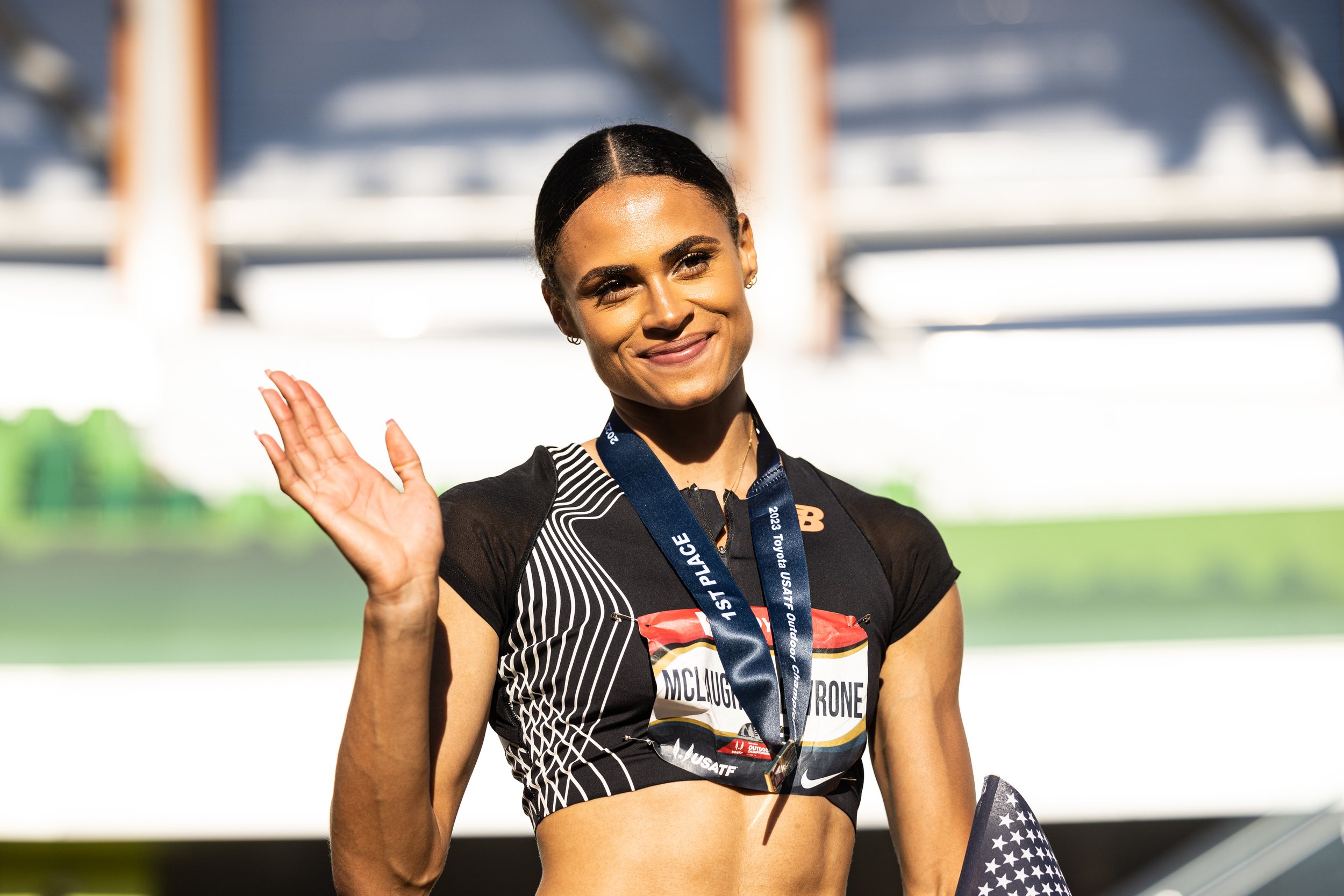Sydney McLaughlin-Levrone’s Golf Mindset Is Fueling Her Push for 400m Flat Glory at the 2025 US Track & Field Championships
When Sydney McLaughlin-Levrone lines up at the starting blocks for the 400m flat at the 2025 US Track & Field Championships, she won’t just be chasing another title — she’ll be chasing the same relentless pursuit of mastery that has defined her career. The world record holder and Olympic champion in the 400m hurdles has made the bold decision to forgo her signature event this year, focusing instead on the one-lap sprint. And if you want to understand why this move makes perfect sense for her, you only need to hear her thoughts on something completely unrelated to the track: golf.
Yes, golf.
Speaking recently to Olympic legend Michael Johnson at the Upfront Summit, McLaughlin-Levrone admitted that golf isn’t exactly her sport — at least, not yet. “Sometimes when we don’t understand something straight away, like golf, like I’m not good at golf,” she said with a laugh. “And I think part of why I don’t want to try golf is because I’m not naturally good at it as a competitor.”
For most people, that might be where the conversation ends. But not for Sydney. She went on to explain that her reluctance is not because she’s afraid of failure, but because she knows what will happen once she gets a taste of progress. “I’m sure, if I started to realise I could get better, then I would want to be the best golfer in the world.”
It’s a small comment, but it reveals everything about the mindset that has made her one of the greatest track athletes of her generation. Sydney McLaughlin-Levrone doesn’t dabble — she commits. When she decides to pursue something, she does so with the singular goal of being the best, and she’s willing to put in the hours of work required to get there.
That same mentality is exactly why her switch from hurdles to the flat 400 this season is so exciting. The 400m is not entirely new territory for her — after all, she’s trained for it as part of her hurdles dominance — but focusing exclusively on it presents a fresh challenge. There’s no need to manage hurdle rhythm or stride patterns; instead, the race demands raw speed, tactical pacing, and a brutal finishing kick. It’s a different kind of test, one that requires her to refine different aspects of her sprinting ability.
Her decision also reflects her desire to keep evolving as an athlete. After breaking her own 400m hurdles world record and dominating the event on the world stage, Sydney could easily have stayed in her comfort zone, stacking up titles and medals. But that’s not who she is. Just like in her hypothetical golf journey, once she senses there’s room for growth, she’s drawn to push herself into uncharted territory.
And make no mistake — McLaughlin-Levrone is not approaching the 400m flat as a side project. She’s entering the race with the same fire that has fueled her to Olympic gold and world-record performances. Her competitors know that facing her means more than just lining up against raw talent — it means going head-to-head with one of the most mentally driven athletes in the sport.
Whether she’s swinging a golf club or storming down the backstretch, Sydney McLaughlin-Levrone’s competitive DNA is impossible to ignore. The 2025 US Track & Field Championships will be another chance for her to prove that the qualities that make her great in the hurdles can also make her a dominant force in the flat 400. And if her golf analogy is anything to go by, once she decides she can be the best, it’s only a matter of time before she is.

